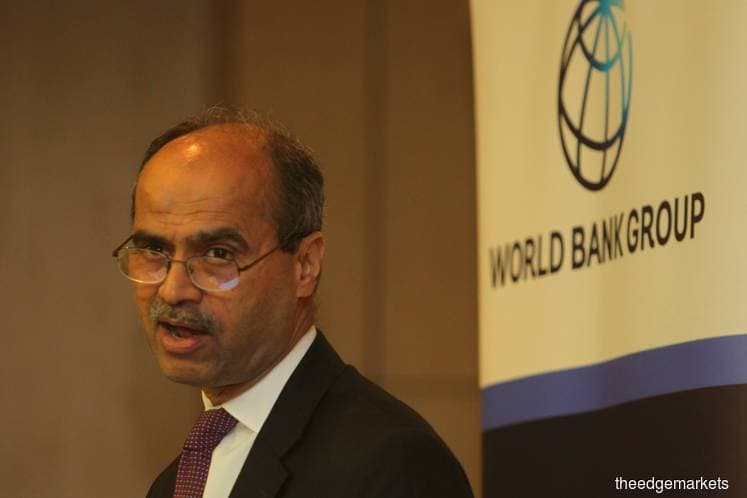
KUALA LUMPUR (Dec 10): The successful development model of East Asia — a combination of outward oriented growth, human capital development and sound economic governance — needs to be adjusted to effectively address new emerging challenges, says the World Bank.
In a regional report titled Resurgent East Asia: Navigating A Changing World, the bank argues that while tremendous progress has been seen over the last quarter century in the region, it is not guaranteed in the future.
Rather the development model that spurred the so called East Asian Miracle will have to adapt to changing technologies, slowing trade growth, and changing country circumstances, if progress is to be sustained.
"Since 2000, East Asia's gross domestic product (GDP) has risen more than three-fold, lifting over a billion people out of poverty and into economic security," said Sudhir Shetty, the World Bank's chief economist for East Asia and the Pacific.
"Despite this progress however, countries in the region still have significant gaps in labour productivity, human capital and living standards compared to high income countries," Shetty said during the launch of the report today.
He added that more than 90% of the region's people now live in 10 middle income countries, many of which can realistically aspire to high income status in the next generation or two.
Yet these countries are still much less affluent and productive than their high income counterparts, he said.
The report examines the nature of such challenges and delineates how policy makers across developing East Asia will need to address them in the coming decade.
In particular it highlights policy reforms under five pillars. They are boosting economic competitiveness, building skills, promoting inclusion, strengthening state institutions and financing the transition to high income.
"Irrespective of countries' levels of income and development, this strategy that has worked so well to date must be adjusted if countries are to sustain high growth, ensure development remains inclusive and deliver on rising expectations of increasing middle class societies," said Shetty, who co-wrote the report.